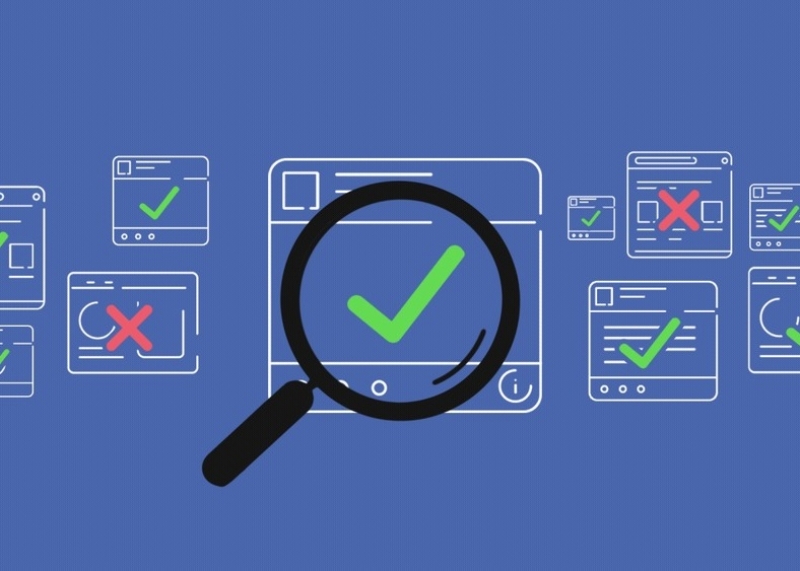- Security Council Divided on United States' Venezuela Action |
- Over 1.53m voters register for postal balloting: Shafiqul Alam |
- Bangladesh Bank to liquidate 9 NBFIs in financial sector reforms |
- Govt Moves to Clear Tk20,000cr Dues to Avoid Summer Outages |
- Maduro Pleads Not Guilty in US Court, Claims Presidency |
How fact-checking can counter misinfo in Bangladesh

Fact checking.
Dhaka, Jan 14 – The battle against misinformation is intensifying across Asia, including Bangladesh, as nations grapple with its damaging effects on societal harmony and public trust.
From fabricated claims of communal violence to manipulated narratives on international conflicts, the region faces a growing crisis that demands robust fact-checking initiatives and greater public awareness.
One alarming example emerged in Bangladesh on the night of 5 August last year, following the Awami League’s fall from power.
Journalist Kamrul Islam received reports alleging that Indian intelligence forces were trapped in Bangladeshi police stations and were shooting civilians. These claims, fuelled by falsified videos, spread rapidly on Facebook, inciting widespread panic. By morning, Kamrul’s verification efforts exposed the narrative as entirely baseless.
This incident underscores the pressing issue of misinformation in Bangladesh.
According to a 2024 survey conducted by Fact Watch, a Bangladeshi fact-checking organisation, social media platforms were responsible for 638 instances of misinformation in the country last year.
August: A Peak in Misinformation
The Fact Watch study identified August as the peak month for disinformation, with over 91 cases recorded. Many of these falsehoods centred around fabricated accounts of violence against minorities in Bangladesh.
On the international front, misinformation during this period included false reports of Iranian President Ebrahim Raisi’s death, alleged Iranian attacks on Israel, and fabricated updates on the Israel-Palestine conflict.
Platforms such as Facebook, Instagram, Twitter, and WhatsApp remain the primary conduits for spreading misinformation. Driven by emotional reactions, users often share unverified claims, amplifying their reach and impact.
“Misinformation is crafted to provoke emotional responses,” explained Professor Suman Rahman, Guidance Editor at Fact Watch. “People seldom verify such claims, especially when they align with their existing beliefs, leading to a cascade of unverified information.”
Kamrul’s experience highlights the dangers of this phenomenon. “That night, I shared the unverified reports with colleagues, who then posted them on Facebook. The panic and disinformation spread like wildfire, dominating the night,” he recalled.
Meta’s Decision and Its Implications
In a controversial move, Meta, the parent company of Facebook, Instagram, and WhatsApp, recently announced plans to cease fact-checking operations in the United States.
Citing concerns about bias and excessive censorship, the decision has drawn sharp criticism.
The International Fact-Checking Network (IFCN), a former partner of Meta, accused the tech giant of being politically influenced and lenient towards misinformation propagated by political leaders.
Analysts warn that if Meta implements similar policies in Asia, it could worsen the spread of disinformation in countries like Bangladesh.
“Discontinuing fact-checking in sensitive regions like South Asia could have devastating consequences,” said Kadruuddin Shishir, Fact-Check Editor for AFP in Bangladesh. “In Bangladesh, where misinformation has previously triggered communal violence, robust fact-checking is indispensable.”
Shishir urged the Bangladeshi government to pressure Meta to expand its fact-checking initiatives.
He also highlighted the lack of fact-checking mechanisms on platforms such as YouTube, making them fertile ground for disinformation.
Challenges in Traditional Media
Misinformation is not confined to social media. A Pew Research study revealed that 73% of Americans believe mainstream media frequently spreads false information. Similar challenges afflict Bangladeshi media, where fact-checking is often neglected.
“While leading international outlets have dedicated fact-checking desks, Bangladeshi newsrooms largely lack such resources,” Shishir noted. “Without proper training, journalists struggle to differentiate between verified and unverified information, undermining their credibility.”
The Need for an Independent Fact-Checking Commission
Experts argue that reliance on corporate entities like Meta for fact-checking is unsustainable. Professor Mofizur Rahman of Dhaka University proposed the establishment of an independent fact-checking commission in Bangladesh.
“If fact-checking organisations are influenced by corporate or government interests, impartiality is compromised. An independent commission would ensure unbiased verification,” he asserted.
Professor Suman echoed this view, emphasising the importance of media literacy among the public. “Educating people to critically evaluate information is just as important as fact-checking itself,” he said.
The Way Forward
As misinformation continues to evolve, so too must efforts to combat it. Strengthening fact-checking initiatives, fostering public awareness, and ensuring the accountability of media platforms are critical steps in safeguarding the truth. For Asia and Bangladesh, where misinformation has had tangible and often dangerous consequences, the fight against falsehoods is more urgent than ever. - UNB

